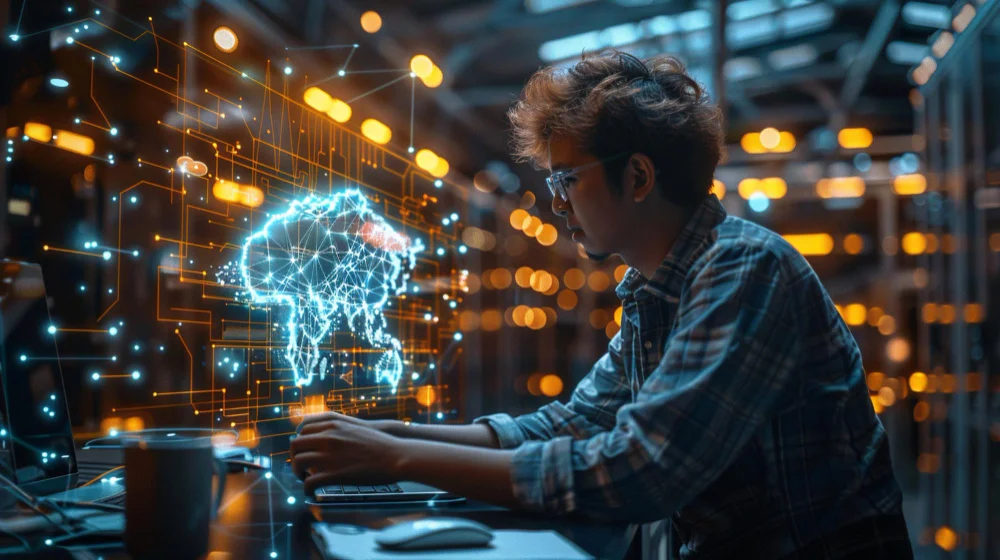
The Impact of AI on Creative Thinking: Revolutionizing the Way We Create
Artificial Intelligence (AI) has been making rapid advancements in recent years, impacting various industries and aspects of our lives. However, one area that has been greatly impacted by AI is creative thinking. AI has the potential to revolutionize the way we create and has already started to do so in fields such as art, music, and even writing. In this article, we will explore the impact of AI on creative thinking and how it is changing the landscape of creativity.
Though AI has been utilized in art for many years, its applications were previously mostly restricted to producing simple forms and patterns. But because of developments in deep learning and neural networks, AI is now able to produce more intricate and lifelike artwork. As a result, a brand-new genre of art known as "generative art" or "AI art" has emerged. In this type of art, an algorithm or set of rules is created by the artist, and the AI then uses those rules to create artwork. As a result, the creative process takes on a new level as the AI and the artist work together to produce something original and surprising.
One of AI's most significant influences on creativity is its ability to generate limitless options. When making traditional art, the artist's only restrictions are their imagination and physical ability. AI has countless applications. It can generate an infinite number of ideas, combinations, and patterns that would never occur to the human mind. This opens up a whole new world of possibilities for musicians, artists, and writers to explore and express their artistic abilities.
AI also has the ability to improve creativity by offering fresh viewpoints and ideas. AI, for instance, is capable of analyzing enormous volumes of data and spotting patterns and trends that people would have missed. This can assist authors and artists in improving their work or in discovering new sources of inspiration. AI may also help with brainstorming sessions by producing concepts and recommendations that could inspire fresh, original ideas.
The democratization of art is another important way that AI has affected creative thought. Nowadays, anybody may make art without any prior creative training because to the advent of AI art tools and software. This has made art more accessible to a larger audience and made it possible for more people to express their creativity. Since that a machine may now produce art, it has also called into question the conventional idea of who qualifies as an artist. Discussions over what constitutes art and the place of the artist in the creative process have been triggered by this.
In the music industry, AI has also made its mark by creating music using algorithms and machine learning. While some may argue that this takes away from the emotion and soul of music, others see it as a new form of collaboration between man and machine. AI-generated music has also been used in video games, movies, and commercials, providing a new level of customization and innovation in the entertainment industry.
Artificial intelligence (AI) has been used to write books, product descriptions, and news stories. Some may contend that this detracts from the authenticity and human element of writing, but others may view it as a means of expediting the writing process and producing information for a wider audience. It is important to remember that AI-generated writing is still in its infancy and cannot comprehend context or emotions, which makes it difficult to create content that is of a high caliber.
AI has many advantages and has advanced significantly, but there are worries about how it may affect creative thought. A primary worry is the idea that artificial intelligence (AI) will supplant human creativity. Experts counter that because AI cannot think or feel like humans, it will never be able to fully replace human creativity. AI, on the other hand, may support and augment human creativity by giving artists additional resources and viewpoints to work from
A further worry is the possible loss of jobs in the creative sector. There is concern that artificial intelligence (AI) may eventually replace human authors and artists since it can now do activities like writing. But technological improvements have also brought forth new work prospects, as we have seen in other areas. One example is the rise of a new profession called "AI artists," who collaborate with AI to produce art, as a result of the development of AI art tools.
In conclusion, AI has had a significant impact on creative thinking, revolutionizing the way we create and express ourselves. It has opened up endless possibilities and collaborations between humans and machines, challenging traditional notions of art and creativity. While there may be concerns about its potential negative impacts, it is essential to embrace and explore the potential of AI in enhancing and complementing human creativity. As AI continues to advance, we can only imagine the endless possibilities it will bring to the creative world.
References:




